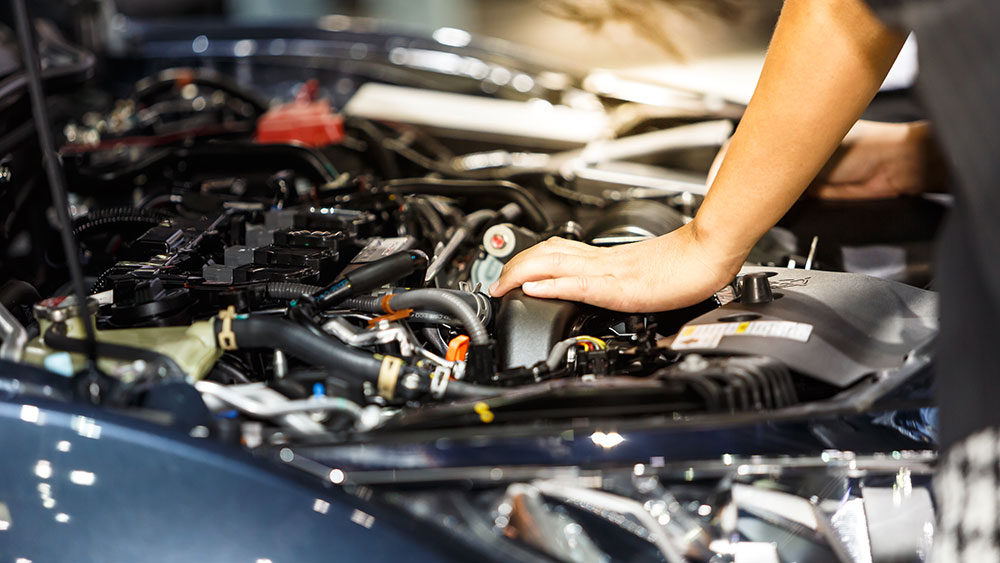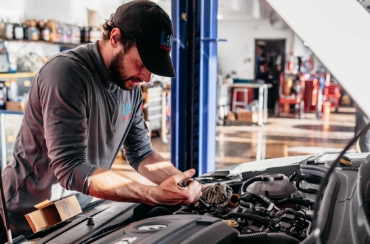All Categories
Featured
EV batteries are huge, complex, and have valuable products, making appropriate disposal and recycling vital. The excellent news is that several repair service stores, in partnership with recycling programs, currently supply electric automobile battery reusing solutions.
![]()
Moreover, the growing variety of electrical automobiles on the road has actually developed a pressing need for lasting options to take care of battery waste. According to industry projections, numerous EV batteries will certainly require recycling in the coming years, making service center a critical component of this community.
Producer Collaborations: Brand Names like Tesla, Ford, and GM have developed recycling efforts, and licensed service center affiliated with these makers usually facilitate battery recycling. Third-Party Recyclers: Independent service center sometimes partner with business concentrating on EV battery recycling, such as Redwood Products or Li-Cycle, which concentrate on drawing out and reusing valuable products from batteries. 3. Just How the Refine Functions. When an EV battery gets to the end of its lifecycle, service center take numerous steps to guarantee its appropriate recycling:
Analysis: Specialists analyze whether the battery can be repurposed for various other uses, such as power storage systems. Disassembly: The battery is meticulously taken down to divide recyclable products. Reusing Transfer: The taken apart elements are sent out to specialized centers where steels and other products are recuperated for reuse. This procedure minimizes waste and maximizes the worth extracted from used batteries, sustaining a sustainable EV ecological community.
![]()
Government regulations and motivations are also driving the growth of battery reusing facilities. In regions like the EU and The golden state, stringent standards on battery disposal make sure that service center and manufacturers take responsibility for recycling efforts.
Conclusion. Yes, fixing shops using electrical car battery recycling are coming to be progressively common. These services play an essential role in creating a lasting EV sector by making certain that made use of batteries are recycled properly.
![]()
As more fixing stores embrace these practices, they not only add to ecological defense yet additionally improve the lifecycle of electrical automobiles. For EV proprietors, seeking service center with recycling solutions is a significant way to sustain sustainability while maintaining their vehicles.
The future of EV battery recycling is promising, with repair service governments, makers, and stores interacting to attend to the difficulties and develop a greener tomorrow.
- Why Reuse EV Batteries? EV batteries are composed of products like lithium, manganese, cobalt, and nickel-- resources that are finite and energy-intensive to remove. Recycling these batteries protects against damaging chemicals from seeping into the environment and minimizes the demand for mining brand-new basic materials. By recuperating these aspects, recycling adds to the circular economic climate and lowers the carbon impact of EV manufacturing.

Moreover, the growing variety of electrical automobiles on the road has actually developed a pressing need for lasting options to take care of battery waste. According to industry projections, numerous EV batteries will certainly require recycling in the coming years, making service center a critical component of this community.
- Fixing Shops and Battery Recycling Programs. Several forward-thinking repair service stores are stepping up to use EV battery recycling solutions. These stores usually work in collaboration with suppliers, specialized recycling facilities, or government-backed programs to guarantee batteries are dealt with safely and efficiently.
Producer Collaborations: Brand Names like Tesla, Ford, and GM have developed recycling efforts, and licensed service center affiliated with these makers usually facilitate battery recycling. Third-Party Recyclers: Independent service center sometimes partner with business concentrating on EV battery recycling, such as Redwood Products or Li-Cycle, which concentrate on drawing out and reusing valuable products from batteries. 3. Just How the Refine Functions. When an EV battery gets to the end of its lifecycle, service center take numerous steps to guarantee its appropriate recycling:
Analysis: Specialists analyze whether the battery can be repurposed for various other uses, such as power storage systems. Disassembly: The battery is meticulously taken down to divide recyclable products. Reusing Transfer: The taken apart elements are sent out to specialized centers where steels and other products are recuperated for reuse. This procedure minimizes waste and maximizes the worth extracted from used batteries, sustaining a sustainable EV ecological community.
- The Role of Fixing Shops in Supporting Sustainability. Repair stores that use battery recycling not only assist minimize environmental impact but likewise enhance consumer depend on. EV owners are more probable to choose businesses that show environmental responsibility. Some repair work shops go an action even more by offering incentives, such as discount rates on brand-new batteries or solutions, to clients that reuse their old ones.

- Challenges and Future Outlook. While battery recycling is expanding, difficulties stay. Not all repair stores are geared up to handle EV batteries because of their safety, size, and intricacy requirements. Nonetheless, as technology advancements and need for reusing boosts, more fixing shops are most likely to adopt these solutions.
Government regulations and motivations are also driving the growth of battery reusing facilities. In regions like the EU and The golden state, stringent standards on battery disposal make sure that service center and manufacturers take responsibility for recycling efforts.
Conclusion. Yes, fixing shops using electrical car battery recycling are coming to be progressively common. These services play an essential role in creating a lasting EV sector by making certain that made use of batteries are recycled properly.

As more fixing stores embrace these practices, they not only add to ecological defense yet additionally improve the lifecycle of electrical automobiles. For EV proprietors, seeking service center with recycling solutions is a significant way to sustain sustainability while maintaining their vehicles.
The future of EV battery recycling is promising, with repair service governments, makers, and stores interacting to attend to the difficulties and develop a greener tomorrow.
Latest Posts
NAPA AutoCare Certified: Turn to Montclare Auto Repair for Excellence
Published Apr 20, 25
2 min read
Full Circle Strategic Marketing - Comprehensive Marketing Firm for Small Businesses
Published Apr 20, 25
2 min read
NAPA AutoCare: Top-Notch Repairs Supported by the NAPA Brand
Published Apr 20, 25
2 min read
More
Latest Posts
NAPA AutoCare Certified: Turn to Montclare Auto Repair for Excellence
Published Apr 20, 25
2 min read
Full Circle Strategic Marketing - Comprehensive Marketing Firm for Small Businesses
Published Apr 20, 25
2 min read
NAPA AutoCare: Top-Notch Repairs Supported by the NAPA Brand
Published Apr 20, 25
2 min read